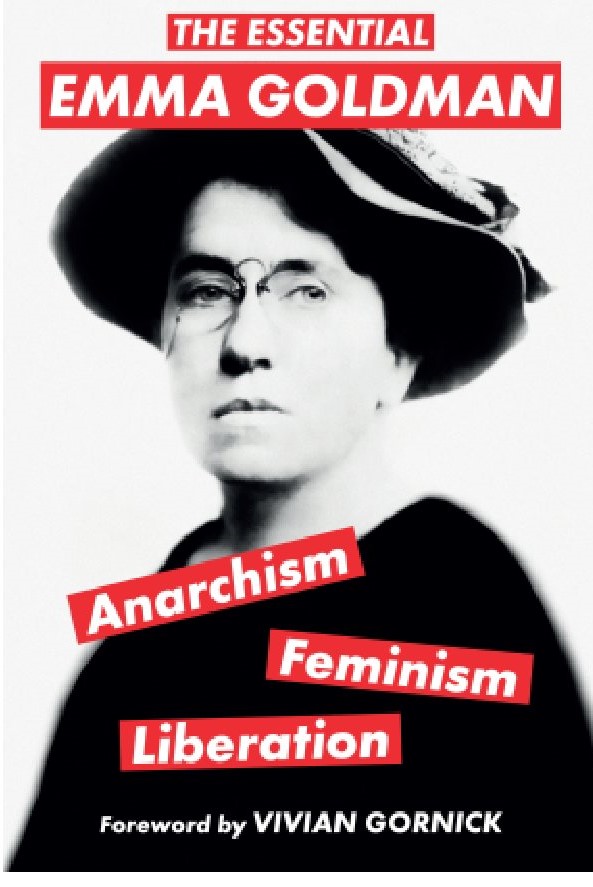This interview was first published in CounterPunch on 3/29/2023
An Interview with Glenn Wallis: Anarchism
By John Kendall Hawkins
Glenn Wallis is an independent scholar and founder of Incite Seminars in Philadelphia. He has taught at several universities, including Brown University and the University of Georgia. His most recent books include A Critique of Western Buddhism and How to Fix Education . Wallis blogs at Speculative Non-Buddhism. He holds a Ph.D. in Buddhist studies from Harvard University.
He has also recently published An Anarchist's Manifesto (Warbler, 2021). He is an expert in Emma Goldman's practical philosophy of anarchy. Here in this interview, he goes into detail about what Goldman espoused and her legacy, while also contrasting her thoughts on anarchy with his own. He addresses how notions of anarchy have changed over time and what its value is today.
#####
HAWKINS: Glenn, Warbler Press recently released a book, The Essential Emma Goldman (2022). Its subtitle is Anarchism, Feminism, and Liberation. This is a good place to start. Can you tell us about these terms and how Emma Goldman put them into action?
WALLIS: That subtitle certainly gets right to the point! When I hear those three words together, I immediately think: oh, Emma Goldman! That's what she dedicated her life to. Or, truer to her own spirit and way of speaking, that is what she fought and bled so mightily for. Goldman's own succinct definition of anarchism is: "a new social order based on liberty unrestricted by man-made law; the theory that all forms of government rest on violence, and are therefore wrong and harmful, as well as unnecessary."
This is a deceptively dense statement, containing far-reaching assumptions about the confluence of human capacity (to be cooperative and creative, for example) and about the state or government (inherently coopting and coercive). Each term requires careful teasing out. The short version, though, is provided by Emma Goldman's life itself. Her life was a testament to her view of anarchism. She chafed against "man-made law" as mere ignorant, self-serving "phantoms that have held [us] captive" to the powers that be. Although she deeply experienced love and longed for the comfort of companionship, to give one example, she never married. This decision was a result of her lived anarchism. She considered marriage to be yet another form of economic bondage, a cynical "insurance pact," a "parasitism," in which both partners are degraded. Anarchist theory enabled her to see through the supposedly natural, inevitable, and self-evidently "sacred institution of marriage." Anarchist theory also enabled her to imagine other possibilities for how we might engage in intimate relationships. Emma Goldman's courage of conviction did the rest.
In this example, we catch a glimpse of how Goldman put all three terms""anarchism, feminism, and liberation""into action at once. Her anarchism was a heuristic into the structures of domination pressing on our lives and, at the same time, a guide to more humane alternatives.
Her feminism disabused her of any and all notions of women's inferiority to men. Her choice not to marry or have children stemmed from her feminist conviction that "Everything within [a woman] that craves assertion and activity should reach its fullest expression; all artificial barriers should be broken, and the road towards greater freedom cleared of every trace of centuries of submission and slavery."
Finally, the entire point of it all, of the anarchist struggle, is liberation. Whenever I hear someone speak like that, I have to ask: liberation from what? As we should expect, Emma Goldman has an answer: "liberation of the human mind from the dominion of religion; the liberation of the human body from the dominion of property; liberation from the shackles and restraint of government. True liberation, individual and collective, lies in his emancipation from authority and from the belief in it." I should also mention her adamant conviction: "History tells us that every oppressed class gained true liberation from its masters through its own efforts."
HAWKINS: You, too, have had a book recently published by Warbler, titled, An Anarchist's Manifesto (2020). By way of contrast, how are Goldman's terms and contributions addressed in your book? Have they changed in character over the last 100 years.
WALLIS: I mention Goldman throughout the book. It is hard not to. As Vivian Gornick says in the Foreword to the Warbler edition, Emma Goldman was "an incarnation." She is a timeless avatar, haunting, in the playful yet uncanny spirit of a poltergeist, any writing on anarchism today. When young leftists hear about Goldman for the first time, the response is typically: what a badass! It is an immense help in making the case for anarchism to have a figure of such courage, intelligence, irreverence, wit, wisdom, integrity, force, humor, and""you can't mention it often enough-- courage, all rolled into one.
(Note: You can view every article as one long page if you sign up as an Advocate Member, or higher).





